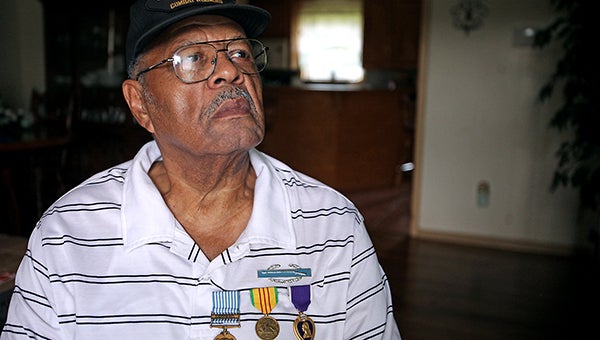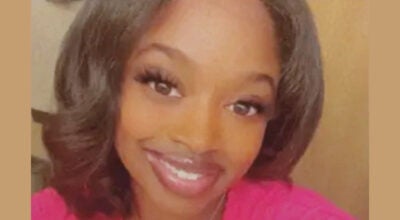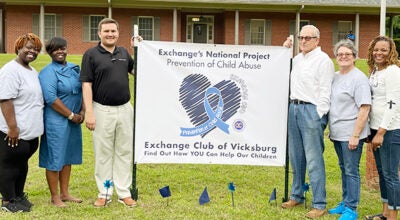POW recalls service in Korea
Published 12:00 am Friday, July 4, 2014

Korean and Vietnam veteran Eddie Williams, who was a POW in the Korean War and was awarded a Purple Heart for numerous injuries, came home to Vicksburg for the Vicksburg Homecoming Benevolent Club’s event this weekend. Williams, 84, will be donating a display of his medals and awards earned over his 21-year career with U.S. Army to the Jacqueline House Museum. (Justin Sellers/The Vicksburg Post)
In 1953, Sgt. Edward Williams never thought he would see Vicksburg again.
Communist forces overran Williams and other members of the 555th Field Artillery Battalion in the Chorwon Valley of Korea.
“We were in hand-to-hand combat. I got lucky and ran up on the top of the hill,” said Williams who now lives in Augusta, Ga., but is in Vicksburg this weekend for events sponsored by the Vicksburg Homecoming Benevolent Club.
Atop the hill, Williams’ luck almost ran out. A mortar shell exploded sending shrapnel into his arm, leg and head. He also suffered chemical burns on his arm from white prosperous.
“I know someone was praying for me beside myself,” he said.
It took more than 50 years for Williams to receive a Purple Heart for the wounds he received in combat and he recently received the final service medal he was entitled too — a United Nations award for actions in Korea.
“I’m going to have two displays of my medals made and give one to them (Jacqueline House),” said Williams, now 84.
Williams left Bowman High School in 1950 to work on a riverboat. When his friends, including Leroy Johnson joined the Army, Williams decided he would follow.
“I went in a few weeks before he did,” Johnson said.
Both ended up at field artillery training at Fort Sill, Okla., before they were shipped out for the Korean War, which some still call “The Forgotten War.”
For these two veterans, the memories of Korea are very much alive.
“Korea hasn’t been forgotten. Officially the war hasn’t ended yet,” Johnson said.
Sometime after Williams was wounded in combat, he was captured by Chinese soldiers. They handcuffed him and marched him to a camp about a day’s trek away.
At camp, a Chinese doctor who had studied medicine at UCLA approached the injured Williams.
“I thought I had gone crazy. You didn’t see anyone else who spoke English,” Williams said.
The doctor performed surgery on the injured soldier in a cave and told him that he would soon be exchanged.
He also helped Williams translate basic questions into Chinese so he could speak to his captors. When the doctor was preparing to leave the camp, Williams was promptly taken to an exchange point.
“He said ‘when you get home take care of yourself and your family.’ He shook my hand and I saluted him. I could tell he was a major or a colonel. I never saw him again.”
Williams recognized how different his treatment by the Chinese was from that of other soldiers after his exchange. There were men at camps who still had shrapnel in their bodies and had been in prison for years. It was a stark contrast to the six weeks he spent as a prisoner of war.
“This is the most I’ve talked about Korea in a long time,” Williams said. “Maybe I’ll feel better about it now.”
Williams’ exchange made international new because he brought a second hand account that Maj. Gen. William F. Dean was still being held in a North Korean prison camp.
Papers across the country published the story of Williams’ release and his knowledge of the fate of the highest-ranking officer captured by the North Koreans. Until William’s release, the popular believe in the U.S. was that Dean had been killed by his captors, according to a 1960 report released by the Pentagon.
Dean later received the Medal of Honor, but both he and Williams have said they weren’t particularly heroic.
“We just did what we were supposed to do. We’re not heroes. The heroes are the ones with the crosses over them. I think about them every time I pass a cemetery. I made it back, but a lot of them didn’t,” Williams said.
Williams and Johnson both stayed in the army and also fought in the Vietnam War before each of them retired.
Johnson now lives in Las Vegas but he and Williams try to visit Vicksburg for Homecoming Benevolent Club festivities.
“Each July we all come home for the big banquet,” Johnson said.





